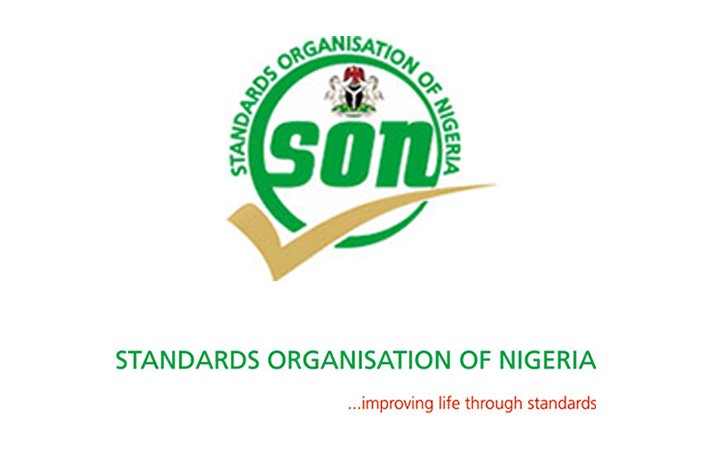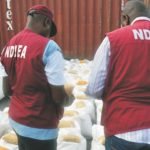The Standards Organisation of Nigeria (SON) said on Wednesday that it confiscated fake and substandard products worth more than N300 billion across the country within the past few months.
Top on the list of seized products were adulterated lubricants, electric cables, and cylinders.
Director General of the agency, Osita Aboloma, who was represented by Yaya Burka, Head, Ports and Border, SON, disclosed this at a Stakeholders Workshop on SON Act 2015 in Lagos.
The SON Act enacted into law by the Seventh National Assembly is a revolutionary document which the agency was deploying toward sanitising the Nigerian market of unwholesome products.
“Let me inform you that the big hauls of seizures which the agency made recently is a testimonial that we mean business by harnessing to the fullest, the enormous powers which the act has accorded us.
“Within the last few months, we have confiscated fake and substandard products worth more than N300 billion across the country.
“We have since embarked on arraignment and trial at various courts of some of the suspects linked with the impounded goods. We are not resting on our oars,” he said.
Mr Aboloma said the theme of the workshop, `SON Act 2015: Enhancing Quality, Harnessing Opportunities’, was very germane and in tune with the efforts of the federal government at turning around the country’s economy.
According to him, the agency decided to conduct nationwide sensitisation workshops on the act not only to enlighten people on its provisions, but to also strengthen stakeholders’ collaborations and engagements.
He maintained that all products manufactured in Nigeria should be certified by the Nigerian Industrial Standards (NIS) through the agency’s Mandatory Conformity Assessment Programme (MANCAP) which is subject to legal enforcement.
The director general added that all imported products must also be certified to the NIS or other approved standards through SON’s Offshore Conformity Assessment Programme (SONCAP).
Also speaking, Paul Ananaba (SAN), the Chairman, Nigerian Bar Association Section on Public Interest and Development Law (SPIDEL), said the additional functions introduced by the act was to assist SON in being more proactive in the prevention of substandard products in Nigeria.
Mr Ananaba, who was represented by Mr Okey Barrah, said, “This, in our opinion is very commendable in the sense that if the structures are put in place to register, track, maintain surveillance and assess the quality of products produced or imported in Nigeria, then there won’t be such influx of fake and substandard products in our market.”
On his part, Wahab Shittu of the Faculty of Law, University of Lagos, urged the management of SON to live up to the agency’s mandate of combating adulterated products.
Mr Shittu also called for periodic training of staff of the agency as well as comprehensive welfare packages that would motivate them in the discharge of their responsibilities.
(NAN)





2 Comments